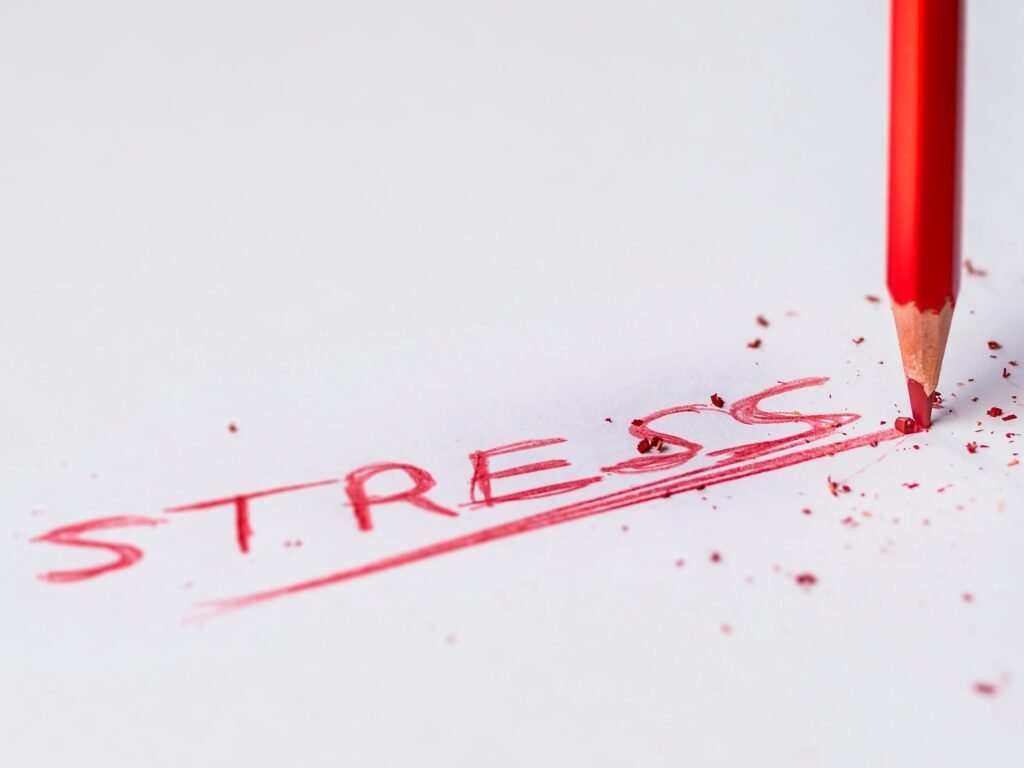Table of Contents
In the hustle and bustle of modern life, stress often becomes an unwelcome companion, lurking in the shadows of our daily routines. From deadlines at work to personal responsibilities and unexpected challenges, stress can manifest in various forms, taking a toll on our mental and physical health. However, amidst the chaos, lies a realm of hope and resilience – a collection of strategies and techniques that empower individuals to reclaim control over their well-being.
Welcome to our exploration of stress management techniques. This page serves as a sanctuary of knowledge and inspiration, offering a roadmap for navigating the labyrinth of stress and finding inner peace. As we embark on this journey together, let us delve into the depths of mindfulness, exercise, healthy habits, time management, social support, and relaxation, uncovering the tools that pave the path to serenity.
We will unravel the mysteries of stress, shedding light on its impact on our lives and illuminating the way forward. Join us as we embark on a quest to nurture well-being in a hectic world, where each technique serves as a beacon of hope, guiding us towards a brighter, more balanced future.
UNDERSTANDING STRESS

In the tapestry of human experience, stress emerges as a common thread, woven into the fabric of our lives. But what exactly is stress, and how does it exert its influence on our minds and bodies?
At its core, stress is the body’s natural response to demands or pressures, whether they stem from external circumstances or internal perceptions. When faced with a stressor, be it a looming deadline, a challenging relationship, or an unexpected obstacle, our bodies undergo a series of physiological and psychological changes designed to help us cope with the situation.
The stress response, often referred to as the “fight-or-flight” response, originates from our primal survival instincts. In the face of perceived danger or threat, the body releases a surge of hormones, including adrenaline and cortisol, which prepare us to either confront the challenge head-on or flee from it.
While this response can be beneficial in acute situations, such as evading a predator in the wild, prolonged exposure to stress can have detrimental effects on our health and well-being. Chronic stress has been linked to a myriad of health problems, including cardiovascular disease, weakened immune function, anxiety, depression, and insomnia.
Moreover, stress doesn’t just affect us on a physical level; it also takes its toll on our mental and emotional states. Persistent stress can lead to feelings of overwhelm, irritability, and burnout, making it difficult to cope with everyday tasks and responsibilities.
Understanding stress involves recognizing not only its physiological mechanisms but also its subjective nature. What may be perceived as stressful for one person may not elicit the same response in another. Our individual experiences, coping mechanisms, and resilience levels all play a role in how we perceive and respond to stressors.
Explore the soothing world of puzzles with “THE MINDFULNESS PUZZLE BOOK INTERNATIONAL EDITION.” Dr Gareth Moore compiles a variety of visual, creative, and logic puzzles, offering a relaxing way to unwind. With over 208,000 copies sold, this book provides a perfect balance of challenge and relaxation for your mind. Engage in puzzle-solving to unlock creativity and relieve stress.
IMPORTANCE OF STRESS MANAGEMENT

The importance of stress management cannot be overstated, as stress can have significant effects on both our physical and mental well-being. Here are several reasons why stress management is crucial:
- Physical Health: Chronic stress can contribute to a variety of physical health problems, including high blood pressure, heart disease, obesity, diabetes, and weakened immune function. By managing stress effectively, individuals can reduce their risk of developing these serious health conditions and promote overall physical wellness.
- Mental Health: Stress is closely linked to mental health issues such as anxiety, depression, and burnout. Persistent stress can exacerbate existing mental health conditions and increase the likelihood of developing new ones. Managing stress can help improve mood, reduce symptoms of anxiety and depression, and enhance overall psychological well-being.
- Cognitive Function: Stress can impair cognitive function, including memory, concentration, and decision-making abilities. Chronic stress has been associated with cognitive decline and an increased risk of developing neurodegenerative diseases such as Alzheimer’s disease. Effective stress management can help preserve cognitive function and support optimal brain health.
- Quality of Life: Excessive stress can diminish quality of life by interfering with relationships, work performance, and daily functioning. Stress can lead to feelings of overwhelm, irritability, and dissatisfaction with life. By learning to manage stress, individuals can enhance their resilience, improve coping skills, and enjoy a higher quality of life.
- Productivity and Performance: Stress can impair productivity and performance in various domains of life, including work, school, and personal pursuits. High levels of stress can lead to decreased concentration, motivation, and creativity, as well as increased absenteeism and presenteeism. Effective stress management techniques can help individuals optimize their performance and achieve their goals more efficiently.
- Relationships: Stress can strain relationships with family members, friends, and colleagues, leading to conflict, misunderstandings, and communication breakdowns. Learning to manage stress can improve interpersonal skills, enhance empathy and understanding, and foster healthier, more supportive relationships.
- Longevity: Chronic stress has been linked to premature ageing and a shortened lifespan. Stress contributes to inflammation, oxidative stress, and other physiological processes associated with ageing and age-related diseases. By managing stress effectively, individuals can promote longevity and enjoy a higher quality of life in their later years.
STRESS MANAGEMENT TECHNIQUES

In the labyrinth of stress, where the pressures of modern life can feel overwhelming, lies a treasure trove of techniques and strategies to help navigate the tumultuous waters. Here are some proven methods for managing stress effectively:
MINDFULNESS AND MEDITATION
Mindfulness involves paying attention to the present moment without judgment, allowing us to cultivate awareness and acceptance of our thoughts, feelings, and sensations. Practices such as meditation, deep breathing exercises, and body scans can help quiet the mind, reduce stress levels, and foster a sense of inner peace.
Indulge in the calming aroma of our Stress Relief Candle. Made with Eucalyptus, Spearmint, Citrus, and Sage, it offers a soothing atmosphere. With a 40-hour burn time and a 300ml clear jar, it’s perfect for relaxation. Follow the safety instructions for optimal enjoyment, ensuring a safe and tranquil experience every time.
EXERCISE AND PHYSICAL ACTIVITY
Engaging in regular exercise is not only beneficial for physical health but also serves as a potent stress reliever. Physical activity releases endorphins, the body’s natural mood lifters, and helps dissipate tension and anxiety. Whether it’s jogging, swimming, yoga, or dancing, finding an activity that brings joy and vitality can significantly reduce stress levels.
HEALTHY LIFESTYLE HABITS
Nurturing the body with healthy lifestyle habits can fortify resilience to stress. Eating a balanced diet rich in fruits, vegetables, whole grains, and lean proteins provides essential nutrients to support overall well-being. Prioritizing adequate sleep allows the body and mind to recharge, enhancing stress resilience and cognitive function. Limiting the consumption of caffeine, alcohol, and stimulants can also help regulate stress levels.
TIME MANAGEMENT AND PRIORITIZATION
Feeling overwhelmed by an endless to-do list can exacerbate stress levels. Learning effective time management techniques, such as setting realistic goals, breaking tasks into manageable steps, and prioritizing activities based on importance and urgency, can restore a sense of control and reduce feelings of overwhelm.
SETTING BOUNDARIES
Establish clear boundaries with work, family, and social obligations to prevent burnout and overwhelm. Communicate your needs and limitations assertively and respectfully, advocating for yourself and your well-being. Practice saying no to requests or demands that exceed your capacity or compromise your values and priorities.
JOURNALING
Set aside time each day to write down your thoughts, feelings, and experiences in a journal. Use journaling as a tool for self-reflection, problem-solving, and emotional processing, gaining insights into your stress triggers and coping mechanisms. Experiment with different journaling techniques, such as gratitude journaling, expressive writing, or mindfulness journaling, to find what works best for you.
SOCIAL SUPPORT AND CONNECTION
Cultivating social support networks and fostering meaningful connections with others are powerful buffers against stress. Spending time with friends, family, or supportive communities provides opportunities for sharing experiences, seeking advice, and receiving emotional validation and encouragement. Sharing laughter, empathy, and companionship can lighten the burden of stress and promote feelings of belonging and resilience.
RELAXATION TECHNIQUES
Incorporating relaxation techniques into daily life can counteract the effects of stress and promote relaxation and well-being. Techniques such as progressive muscle relaxation, guided imagery, aromatherapy, and mindfulness-based stress reduction can induce a state of calmness and tranquillity, allowing the body and mind to unwind and recharge.
LIMITING MEDIA CONSUMPTION
Set boundaries around your exposure to news, social media, and other digital distractions that can contribute to stress and anxiety. Schedule specific times during the day to check news updates or engage with social media, avoiding excessive scrolling or doomscrolling. Choose reputable sources of information and be mindful of how certain content affects your mood and well-being.
CREATIVE OUTLETS
Explore creative activities such as painting, drawing, writing, cooking, or gardening as outlets for self-expression and stress relief. Allow yourself to engage in these activities without judgment or pressure to be perfect, focusing on the process rather than the outcome. Embrace experimentation and playfulness, tapping into your imagination and curiosity to discover new hobbies and interests.
SEEKING PROFESSIONAL HELP
If stress becomes overwhelming or persists despite your efforts to manage it, don’t hesitate to seek support from a mental health professional. A therapist, counsellor, or psychologist can provide guidance, support, and evidence-based interventions to help you develop effective coping strategies and address underlying issues contributing to your stress. Remember that seeking help is a sign of strength, and you deserve support and assistance in navigating life’s challenges.
In the tapestry of life, stress may be an inevitable thread, but it need not dominate the fabric of our existence. Through the exploration of effective stress management techniques, we have uncovered a wealth of tools and strategies to navigate the challenges of modern life with resilience and grace.
From the practice of mindfulness and meditation to the embrace of physical activity and healthy lifestyle habits, each technique serves as a beacon of hope, guiding us towards a brighter, more balanced future. By prioritizing self-care, fostering social connections, and embracing relaxation, we can cultivate a sanctuary of peace within ourselves, even amidst the chaos of the world around us.
MORE LIFESTYLE RELATED ARTICLES

